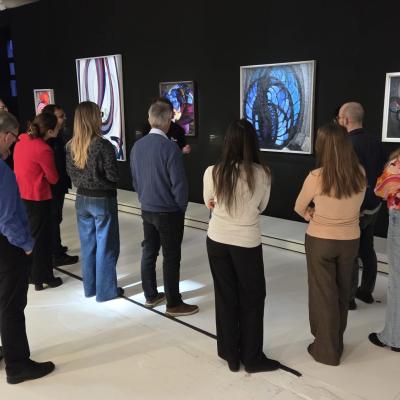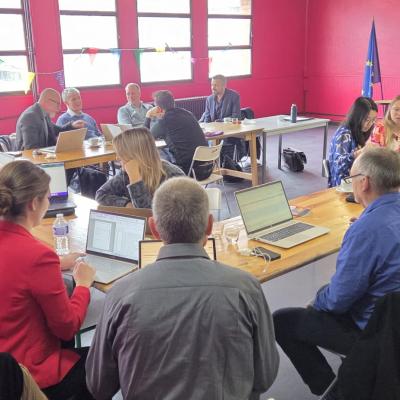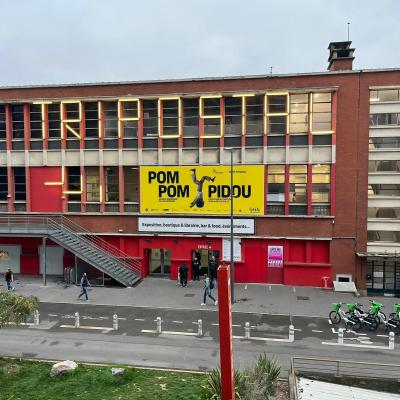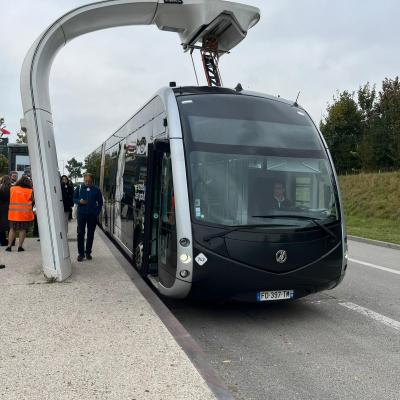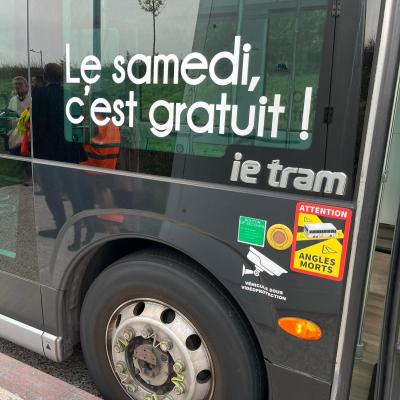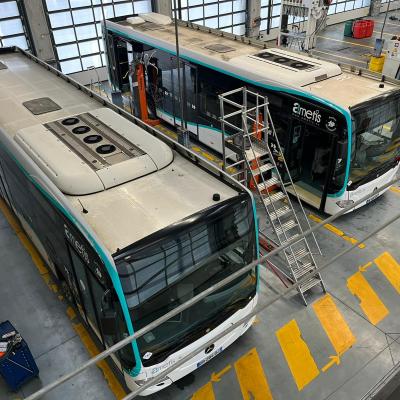The BRAVE consortium met for its second partner meeting in Lille, France, on Tuesday, October 14th and Wednesday, October 15th, 2025. The two-day event was packed with plenary presentations, insights from external finance and policy experts from the Amiens and Hauts-de-France regions, a site visit to the Amiens bus depot, and a participatory workshop. The core ambition remains establishing novel public-private partnership models for scaling technically mature clean energy solutions.
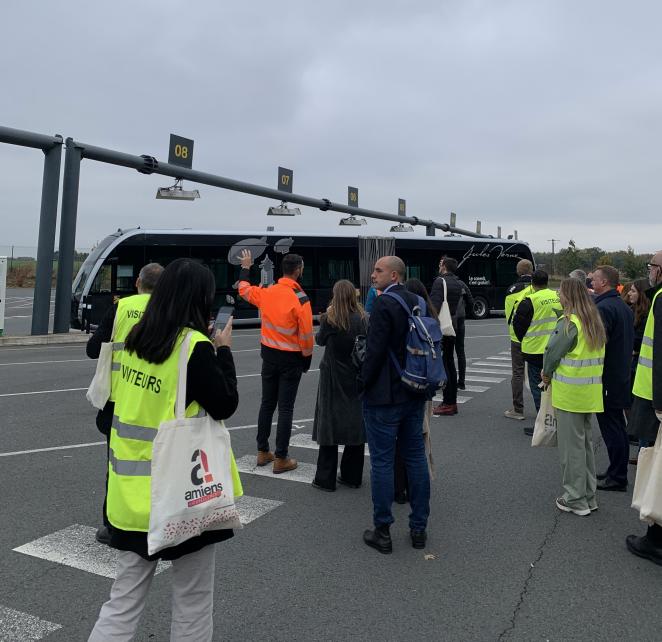
Interesting presentations and site visit
Day 1 included a high-level review of the project's progress, an introduction to a soon-to-be-released report by Cleantech Scandinavia, and a visit to the pilot bus depot in Amiens, where partners received a detailed presentation from Amiens Métropole and KEOLIS.
Day 2 featured three finance-focused guest speakers from the region of Hauts-de-France, Crédit Agricole, and REV3, followed by in-depth pilot updates and a workshop on monitoring business readiness methodologies.
The BRAVE Pilots: Now Emerging from the Trough
All eight pilots have now finalised detailed roadmaps, including their ambitions, KPIs, PEST (political, economic, societal, and technological) factors, and stakeholder engagement plans. To foster collaboration, the partnership proposed three pilot "clusters" based on similar challenges:
Establishing Initial Investment Case: Malmö, Flux50, and BOM.
Evolving Existing Innovation Support: Rotterdam and Hannoverimpuls.
Building on Existing Success: Aarhus, Amiens, and ASTER, who focus on developing long-term business and replication strategies.
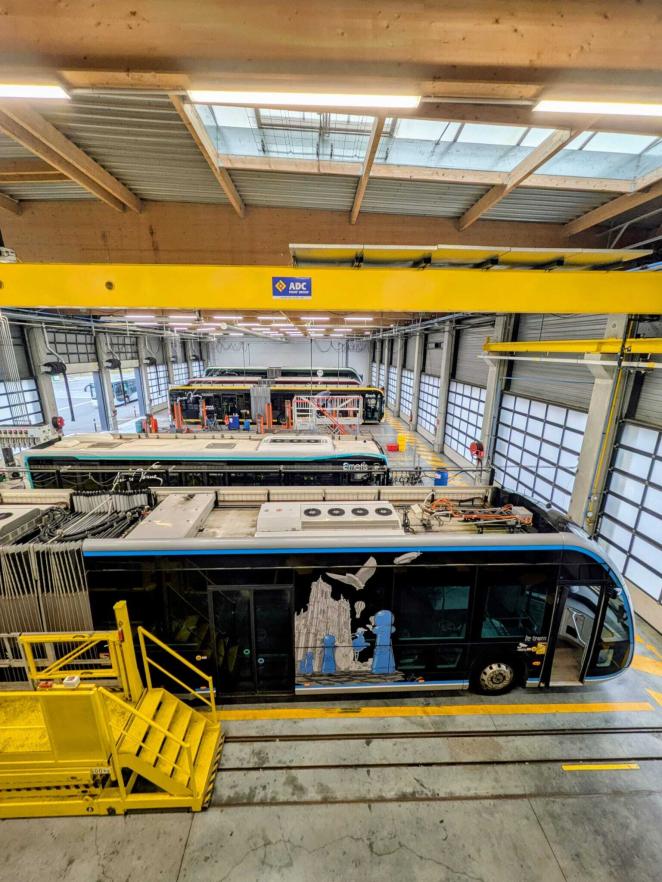
"Innovation is Political": Lessons from Amiens
A key takeaway from the French partner meeting was how strongly political will can influence innovation priorities and complicate the investment case, often having a greater impact than the high TRL level of the clean energy technology itself.
The site visit to the €130m electric bus depot in Amiens highlighted this reality. While Amiens Métropole and KEOLIS successfully delivered the fleet, roughly 50% of passengers are exempt from paying transportation fares, and the entire bus network is free on Saturdays. This political decision has a drastic impact on the business case for the fleet and the ability of the metropole to repay loans or invest further.
A further example was provided by ASTER, who highlighted that in Belgium, high grid tariffs for sharing locally generated energy between buildings can undermine any cost savings, effectively breaking the business case for local energy sharing.
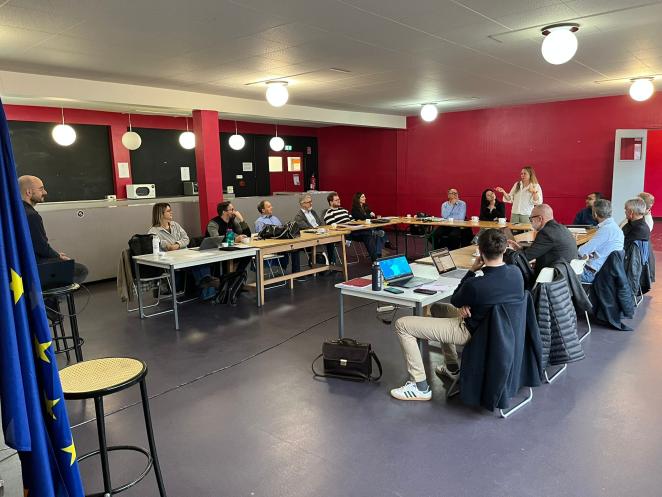
The Urgent Need for New Investment Models
The Amiens pilot visit provided useful insight into how the €135m electric bus fleet was financed through several public funds. However, presenters noted that the changing macroeconomic situation in France, including a reduction in available public funding, is making similar future projects less viable.
This change is driving projects to seek alternatives, primarily sources of private investment. Indeed, the European Commission estimates that only 15-20% of the total investment needed for the climate transition is covered by public budgets, meaning the rest will likely require private involvement.
While the role of cities in the energy transition is growing, and they are experimenting with proactive approaches to steering green investments—such as the "climate funds" tested in the BRAVE Aarhus pilot—a lively discussion ensued regarding their capacity. The consortium debated whether city-level governments have the internal capacity and expertise to attract and manage large climate funds of up to €1bn, or if other local private actors might be better positioned to do so. Cleantech Scandinavia’s upcoming BRAVE report will explore this question in more detail.
Promotion: Core to BRAVE’s Scale-Up Ambition
The closing discussion reinforced that international communication is core—not complementary—to the project’s success, scale-up, and replication mission. It was emphasised that the BRAVE pilots must share local learnings with each other and publicise evolving insights with a wider European network at highly attended events.
Attending these events will be a priority for Year 2 of BRAVE, putting the project on the European stage to publicise its scale-up insights and attract future interest from policymakers, financiers, and technology service providers.

